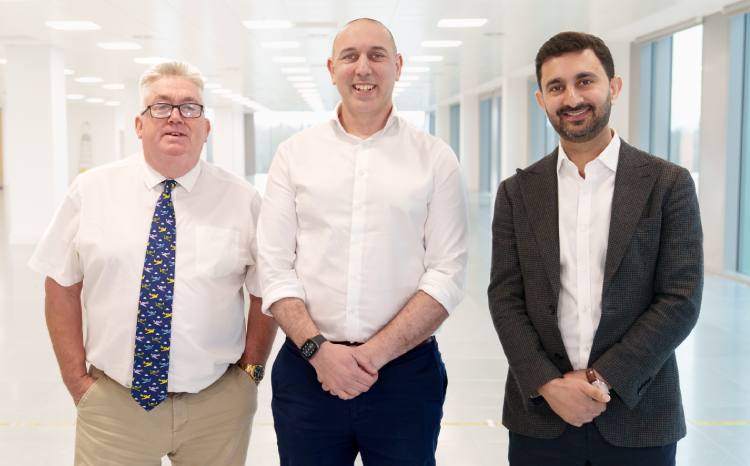CCIO on NHS CB “jolly good idea”
- 9 March 2012

Health secretary Andrew Lansley has said a chief clinical information officer on the new NHS Commissioning Board would be a “jolly good idea.”
Responding to a question at the launch of the EHI CCIO Leaders Network in London yesterday, Lansley stressed that he was reluctant to “recommend” that the board in Leeds should appoint a CCIO.
The whole point of his Health and Social Care Bill, he insisted, was to give NHS organisations – including the powerful board headed by Sir David Nicholson – the freedom to run their own affairs.
“The NHS CB must decide what happens. But it is a jolly good idea,” Lansley said in response to the question from Simon Eccles, medical director for NHS Connecting for Health.
At the launch event at the Royal College of Physicians in central London, Lansley gave more details of the split between the IT role of the NHS CB and the “new, leaner delivery organisation” that will replace NHS Connecting for Health by April 2013.
He said the NHS CB would be responsible for: commissioning and sponsoring national infrastructure, applications and services; finding “powerful levers to push the adoption of NHS information and IT strategies”; overseeing information standards and information governance; identifying and highlighting best practices; and promoting informatics leadership and development.
In response to another question, Lansley also suggested that the NHS CB would carry out these roles at a local level, working through the offices that will be established on cluster primary care trusts.
Asked whether it should be the role of local clinical commissioning groups “to be system leaders to drive IT-enabled change”, Lansley said “not necessarily, because the NHS CB has its experts and local offices, and it may say they have the skill to take system responsibility.”
He argued that the NHS CB would be well-placed to take on this role, because it would be responsible for shaping the commissioning system to drive quality in the NHS, while CCGs focused on managing their budgets in the best interests of their patients.
A recent document from the NHS CB itself suggests it will also house a ‘My Health’ unit to work on patient information services.
However, it has yet to appoint a director of ‘patient engagement, insight and informatics’, even though most of its other big appointments are now in place.
Lansley said the new delivery organisation will be responsible for: approving and accrediting national and local systems against technical and other standards set by the NHS CB, so systems can talk to each other; managing and monitoring the day to day performance of national systems and services, such as the spine; and supporting the delivery of information standards and governance processes.
The launch of the EHI CCIO Leaders Network marks the end of the first stage of the EHI CCIO Campaign that was launched last year to encourage all NHS providers to appoint a CCIO to lead on IT and informatics projects.
It also marked the start of the network, which is being developed in partnership with the Royal College of Physicians and the British Computer Society, with support from BT, Cerner and iSoft, to support the seven CCIOs already in place and promote and develop new CCIOs.
Lansley spent almost an hour at the launch at the RCP, supporting the network and taking detailed questions from the audience.
He became heated when Nicola Strickland, a consultant radiologist at Imperial College Healthcare NHS Trust and an officer of the Royal College of Radiologists, told him his “top-down bill” would turn healthcare into a set of “discrete periods of care” delivered by both the NHS and any qualified providers.
She said that integrating records and images in the new system would be a “huge challenge.”
However, Lansley said “almost everything” Dr Strickland had said was “wrong” since his bill was intended to empower patients, clinicians and clinical commissioners, who would be able to shape integrated services and make collaboration a condition of being an AQP.
“We are looking to a world of integrated care, and if there is competition then it will be to improve quality,” he said.




